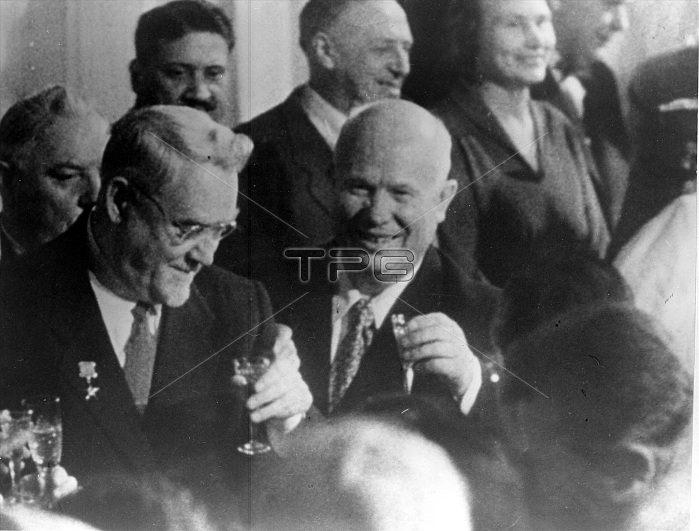
Nikita Khrushchev was born in the village of Kalinovka, Dmitriyev uezd, Kursk Guberniya of the Russian Empire (now Kursk Oblast of the Russian Federation). In 1908, his family moved to Yuzovka, Ukraine. Although, apparently, highly intelligent he only received approximately two years of education as a child and probably only became fully literate in his late twenties or early thrities. He was trained for and worked as a joiner in various factories and mines. During World War I, Khrushchev became involved in trade union activities, and after the Bolshevik revolution in 1917 he fought in the Red Army. He became a Party member in 1918 and worked at various management and Party positions in Donbass and Kiev. In 1931 Khrushchev was transferred to Moscow and in 1935 he became 1st Secretary of the Moscow City Committee (Moscow Gorkom) of VKP(b). In 1938 he became the 1st Secretary of the Central Committee of the Ukrainian Communist Party. Beginning in 1934 Khrushchev was a member of the Central Committee of the VKP(b)/CPSU, and he was a member of Politburo from 1939. In 1958, Khrushchev replaced Georgy Malenkov as prime minister and established himself as the undisputed leader of both state and party. He became Premier of the Soviet Union on March 27, 1958. Khruschev promoted reform of the Soviet system and began to place an emphasis on the production of consumer goods rather than on heavy industry. In 1959 during Richard Nixon's journey to the Soviet Union, he took part in what was later known as the Kitchen Debate. Khrushchev's new attitude towards the West as a rival instead of as an evil entity alienated Mao Zedong's China. The Soviet Union and the People's Republic of China, too, would later be involved in a similar "cold war" triggered by the Sino-Soviet Split in 1960.
| px | px | dpi | = | cm | x | cm | = | MB |
Details
Creative#:
TOP19155043
Source:
達志影像
Authorization Type:
RM
Release Information:
須由TPG 完整授權
Model Release:
No
Property Release:
No
Right to Privacy:
No
Same folder images:

 Loading
Loading